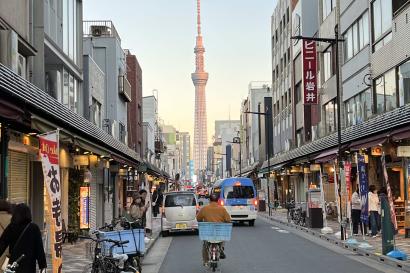
Being a foreigner in Japan means you will undoubtedly encounter challenges along the way, whether you are visiting or living there. But being someone who is of Asian descent in Japan, whether or not that includes being of Japanese descent, presents a whole unique set of challenges.
I have three different stories I would like to share of the experiences of people I know in Japan who have faced these challenges. (Disclaimer: All of these people have given consent for me to use their names and stories in this blog.)
I have two friends who are of Japanese descent on this program. One of them is from Hawaii and grew up listening to her mother speak to her in Japanese, so her language ability and pronunciation is better anyone else’s on this program. Unfortunately this can backfire when she doesn’t understand something and has to tell people that, but since she has such good pronunciation sometimes they don’t believe her. There was also one incident where an old guy started berating her loudly in public for speaking English and asking her why she wasn’t speaking in Japanese. When she replied that it was because she was American, he countered her by saying “You have an Asian face so you can’t be American. You have to be Korean or Japanese or something”. Needless to say, the experience really shocked her.
My other friend is a quarter Japanese and although she lived in Japan as a child she never achieved fluency in the language. Her grandmother (who is Japanese) wanted her to have a Japanese name, so her mother named her Noriko. People in Japan have actually asked her if she adopted that name when she came to Japan to study abroad so that she could “fit in better” or something. She gets stared at a lot just like the rest of us, but most of the time it is because people are trying to figure out whether she is Japanese or not. And just like with the rest of us, it can make her feel very uncomfortable. People also expect her to speak fluent Japanese and they will give her a very disappointed look when she has to tell them she doesn’t understand what they are saying, which of course can be demoralizing. She has said multiple times that she is “too Japanese for America and too American for Japan”.
A slightly different example would be that of one of our program coordinators who is of Korean descent. Her grandparents came to Japan from Korea so she is a third-generation Korean living in Japan. Notice that I did not say she was Japanese or even Korean-Japanese; she identifies herself as a Korean living in Japan. This gets complicated because although she considers herself a Korean in Japan, when she goes to Korea she considers herself Japanese because she doesn’t know the Korean language and culture well. This is partly because, with a few exceptions, you are not allowed to hold dual citizenship if you are a citizen of Japan. In order to become a Japanese citizen, you would have to give up any other citizenship you currently held. My program coordinator refuses to give up her Korean passport and so she is restricted in certain ways; for example, she is unable to vote in Japan, although she says she doesn’t mind this.
All of these examples shed light on how complicated the idea of identity can be in Japan and, in the case of my program advisor, point to the current issue of how government policies can adversely affect Japan-born “foreigners”.

Mikaela Breese
<p>Mikaela is a junior at Indiana University majoring in International Studies and East Asian Languages & Cultures. Originally from the suburbs of Chicago, she has spent the past few years enjoying life as a Hoosier while dreaming of the day she finally got to go abroad. Traveling is one of her greatest passions and she looks forward to exploring not only Tokyo but as much of Japan as possible during her semester abroad. She is actively involved in both her sorority and International Studies Honor Society, and enjoys reading, hiking, and drinking tea in her free time. She is so excited for the adventure that lies ahead and can’t wait to share it with everyone!</p>








